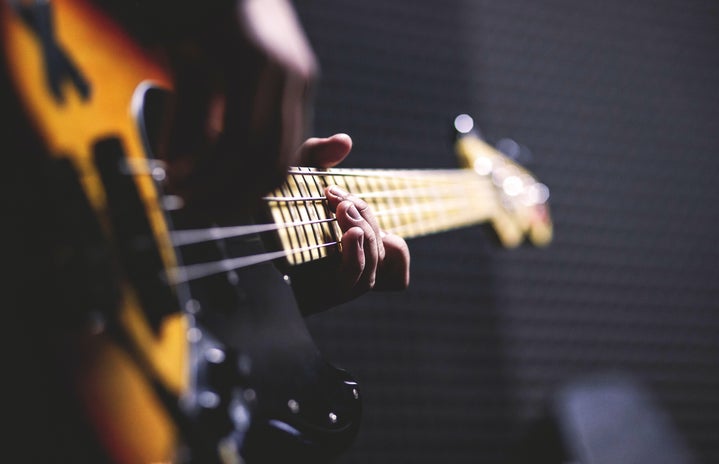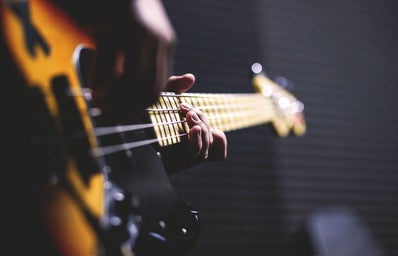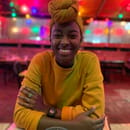It’s difficult for me to pay homage to such a wholesome human being simply because I previously never knew much about him. Since his death only several days ago, I have seen countless posts on social media about Nipsey Hussle. The pain in each image, sadness in every comment, and heartbreak in every video has left me wondering why bad things happen to good people. To be completely honest, I think I’ve only listened to one or two of his songs. Even so, in just a couple of days I have learned that the L.A. rapper was a philanthropist, entrepreneur, and community leader. He was way more than just a rapper; he was a black man who was out to make a difference.
Ermias Asghedom was born to an Eritrean father and American mother August 15, 1985. Growing up in Los Angeles, California, he was constantly surrounded by gang violence. The Crenshaw District, which is known for its long history of violent crime and high incarceration rates, was home to the Rollin’ 60s. It was when Asghedom was just 14 that he left home to join this subgroup of the Crips. It was very normal for youth in the area to live a life filled will constant threats of murder and felonies. Unlike his peers, however, Asghedom was able to escape the streets. He told The Los Angeles Times in 2018, “Growing up as a kid, I was looking for somebody—not to give me anything—but somebody that cared. Someone that was creating the potential for change and that had an agenda outside of their own self interests.” “A young Nipsey Hussle making music on windows 95”
Before his music career, Hussle (Asghedom’s stage name) was heavily involved in technology while attending a local community college. He built his own PC and learned to use certain software to record himself. According to E! News, he released his first mixtape, Slauson Boy Volume 1, in 2005. Three years later after signing with Cinematic Music Group and Epic, he released Bullets Ain’t Got No Name, Vol. 1 and Vol. 2. In the following years he would make even bigger mix tapes and collaborations with artists like Drake, Snoop Dogg, Blanco, YG, The Game, Kendrick Lamar, and Rick Ross.
Stereogum states, “In 2008, he dropped three installments of his Bullets Ain’t Got No Name series. He founded his own record label, All Money In, in 2010, and then released The Marathon, The Marathon Continues, and Crenshaw. Jay-Z bought bought 100 copies of the latter for $100 each. That same year, he appeared on Snoop Dogg’s Malice In Wonderland album.” Selling out his 1,000-album inventory was just the beginning of Hussle’s marketing efforts. In June of 2017 he decided to open up his Marathon Clothing store along with his brother, Samiel Asghedom, and Steve Carless. Not long after in 2018, he would release his first studio album, Victory Lap, which was nominated for Best Rap Album at the Grammy’s this year.
I could go further into his lyrical intricacies with FDT (F*** Donald Trump), Mailbox Money (mix tape), or even Famous Lies & Unpopular Truths (mix tape), but Hussle made impacts far beyond hip-hop. In regards to Marathon Clothing, which is highly noted for it being a “smart” store, he branded it off of a true understanding of retail. According to BET, “The landscape of his Marathon store was to build a unique lifestyle experience for his customers. Customers can purchase merch and use an app to preview exclusive content. Hussle said, ‘The philosophy of this retail space is to be an experience, and while you’re in the process of the experience, you’re surrounded by branded products.’” He was always involved with his community because he wanted to give others the chance to pursue their dreams outside of stereotypical black narratives.
Living in the inner city and growing up to have a platform to reach out to his people was something Hussle took great pride in. He essentially wanted to give back to the youth where he grew up in Los Angeles. A STEM (science, technology, engineering, and mathematics) center was even built under the guidance of Vector 90 and Hussle to support younger kids and their academic endeavors. He strived to help the less fortunate and rebuild neighborhoods.
The LA Times recognized his goodwill in buying shoes for students, fixing up basketball courts and playgrounds, giving jobs and shelters for the homeless, and even paying for funerals for families who struggled to do so. According to Los Angeles Magazine, “Hussle had been a leading advocate for Destination Crenshaw, a 1.3-mile ‘open-air museum’ celebrating the black history and art of the community being built along Crenshaw Boulevard.” Hussle selflessly contributed to the wellbeing of the L.A. community, and worked endlessly on finding new ways to change it for the better. Unfortunately, Hussle was killed before he meet with the LAPD to put a stop to gang violence. It breaks my heart to see how a man who worked so hard to help kids off the streets was suddenly shot and killed at 33 years old.
It was announced on April 2 that Hussle’s murder suspect was arrested. CBS News reported, “Police said that 29-year-old Eric Holder was taken into custody after a witness spotted him in Bellflower, about 20 miles from the shooting scene.” Lauren London, girlfriend of Hussle since 2013 and mother to their son, Kross Asghedom, has spoken out about her suffering since Hussle’s death. He was also a father to a daughter, named Emani, from a previous relationship. Countless other celebrities have expressed their grief via social media, and memorials and vigils are still happening to mourn him. Two other people were also taken to the hospital after the shooting that took place in front of Marathon Clothing. London, left, and Hussle, right.
Gun violence in America wreaks constant havoc, and has been increasing for the past decade. The New York Times found in 2018, “More people died from firearm injuries in the United States last year than in any other year since at least 1967. There were 39,773 gun deaths in 2017, up by more than 1,000 from the year before.” When 2019 began, there were already mass shootings taking place across the nation. The simple fact that gun laws haven’t changed after such deadly events is highly upsetting. People want to see gun control but there is nothing being done to change that. This is a very controversial topic, especially in regards to the African-American community.
Violence Policy Center summarizes the issue of black homicide victimization. “The black homicide victimization rate is four times the national homicide victimization rate, and more than six times the homicide victimization rate for whites. More than 85 percent of black homicide victims are shot and killed with guns.” My mind is still trying to wrap around the fact another black man who was advocating for his people was shot. Another role model, another father, another son, another friend, and another hero is gone. The youth especially needed someone like him to look up to. Hussle lived in gang culture and lived in normalized street violence. It doesn’t have to be this way in the future, but as long as gun violence continues without proposals to address it there will more black men facing this nightmare.
I hope that there is justice. I hope the legacy of Hussle lives on just as Tupac and Biggie Smalls. I hope that people realize how much they can do to change their communities, no matter what background or upbringing they come from. And I hope that the people Hussle inspired continue his work to its fullest potential.



